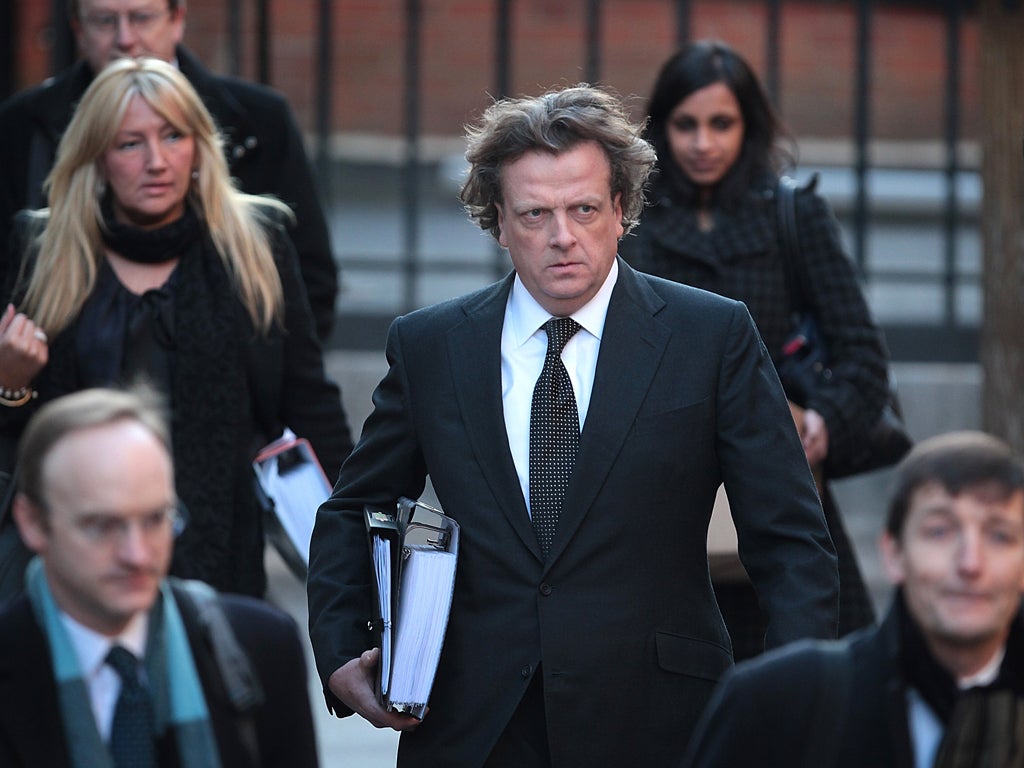Hacking may well have taken place at Mirror, says editor

One of Piers Morgan's key associates during his editorship of the Daily Mirror told the Leveson Inquiry yesterday it was possible that one of the paper's award-winning scoops – its 2002 revelation of the affair between the then England football manager Sven-Göran Eriksson and the TV presenter Ulrika Jonsson – could have been obtained by phone hacking.
Richard Wallace, who was showbiz editor at the Mirror under Mr Morgan and now edits Trinity Mirror's flagship title, also admitted that hacking among the paper's showbiz team – described as commonplace during previous inquiry evidence – may have been "hidden" from him.
The Sunday Mirror's editor, Tina Weaver, also told the inquiry that she could not guarantee phone hacking had not taken place at her paper.
It is the first time the two executives have admitted that the practice of illegally accessing telephone voicemails could have been happening at their titles.
The Metropolitan Police are currently engaged in a criminal investigation into the extent of phone hacking at News International, the UK print subsidiary of Rupert Murdoch's News Corp.
Last November, the former Mirror reporter James Hipwell told Lord Justice Leveson's inquiry into press culture and ethics that phone hacking during the Morgan years was regarded as a "perfectly acceptable way of getting stories" and "a bog-standard journalistic tool".
Mr Wallace was appointed as the Mirror's showbiz editor in 1999 and became its head of news a year later. David Barr, the junior counsel to the inquiry, asked him whether he had been aware of phone hacking on the showbiz desk. Mr Wallace replied: "Not to my knowledge."
Mr Barr responded: "Can I take it therefore that it's possible that [phone hacking] was going on but hidden from you?"
Mr Wallace replied that it "might well have been".
Of the Eriksson-Jonsson exposé, detailed in Mr Morgan's book, The Insider, Mr Wallace is described as going into the editor's office and saying: "I think you may need to sit down for this one."
When Mr Wallace was asked about the source of his tip about the affair, he said he could not recall the details. Again, Mr Barr asked if it was "possible" that it was phone hacking? Mr Wallace replied: "It's possible, yes."
Ms Weaver was asked whether, at one point during 2004, phone hacking was regarded as a way of getting scoops, and if there was gossip among the paper's staff about the practice.
Asked if this was true and if she could help on the matter, Ms Weaver told the inquiry: "No, I can't."
She added that she was not in a position to offer guarantees that phone hacking had not taken place at the Sunday title.
Last July, the BBC reported allegations that one reporter on the Sunday Mirror was called the "master of the dark arts". Ms Weaver told the inquiry she believed the claims were untrue.
Lloyd Embley, editor of The People, which is also part of the Trinity Mirror newspaper stable, was a Mirror journalist at the same time as Mr Hipwell. He told the inquiry that he had "never seen any phone hacking" and said allegations that it was commonplace were "incorrect and unsubstantiated".
* Before the formal start of yesterday's proceedings, a letter from the legal team of the former Prime Minister Gordon Brown was read out.
It disputed evidence given to the inquiry by the former Sun editor, Kelvin MacKenzie, who claimed Rupert Murdoch had told him that Mr Brown had "roared" at him for 20 minutes after being told his papers were switching their allegiance to the Conservatives. "The story is completely untrue," the letter said. Lord Justice Leveson said he might summon Mr Brown to give his side of the story later in the inquiry.
Newspapers may be forced to join regulator
Simon Carr: Thankfully, media hackers, thieves and blackmailers can always rely on Ken Clarke
Subscribe to Independent Premium to bookmark this article
Want to bookmark your favourite articles and stories to read or reference later? Start your Independent Premium subscription today.
